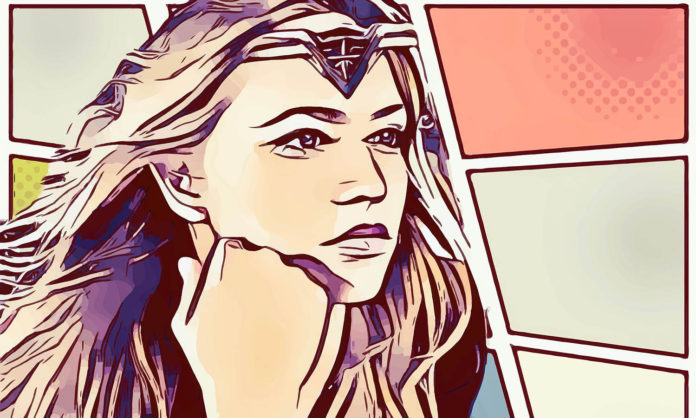
The Catch-22 with creating “strong female characters” is that readers find them either unrelatable or unrealistic. You might love your heroine for being assertive, but discover your readers found her bitchy. In a post on CrimeReads, Elysia Whisler notes that her first novel was rejected multiple times before an editor confessed that they didn’t like the female lead because she was “too strong.”
“What did that even mean?” Whisler wondered. “In a society that has long pushed a culture of weakness on women—underfed, underweight, under-voiced, under, under, under!—we’ve gotten used to women who, when crushed by great force or pressure, are not expected (or even wanted) to punch through that heavy weight, but to be rescued from it instead.”
Whisler realized that her heroine wasn’t unlikeable; she merely made some people uncomfortable, because she was “acting in ways that weren’t expected and looking ways people didn’t want her to look.”
Whisler eventually found success without weakening her character, the protagonist of her debut novel, Rescue You. However, despite cultural changes that make strong women more palatable to the market, Whisler says we need to be careful that we aren’t creating stereotypical women warriors, but characters who are complete inside and out.
“We are at a place in the world, and thus in our fiction, where the desire and need for heroines who aren’t constantly weak and being saved by someone else is clashing with a culture still clinging to old ideas of what a heroine should look and act like, and the result can often be heroines that don’t reflect who we really are, but are just being dressed up in ‘strong suits,'” Whisler explains.
Strength comes in many sizes and colors. Women characters can have multiple strengths – emotional, psychological, and physical – that have nothing to do with punching, shooting, or lifting heavy objects. They can be complicated. Their faults can show. None of this should render them “unlikeable.”
“It’s okay to be ‘toned’ and wear the magical bracelets but our women characters should also be allowed to develop their strengths from within, to be actually, physically strong, to clean their plate on a date and to be grumpy and protective of that strength she’s cultivated,” Whisler says. “I’m not writing my strong women in a way to make anyone comfortable. Rather, I’m writing the strong women I know in real life and hope we start to cheer for them as much as we do our heroes.”











